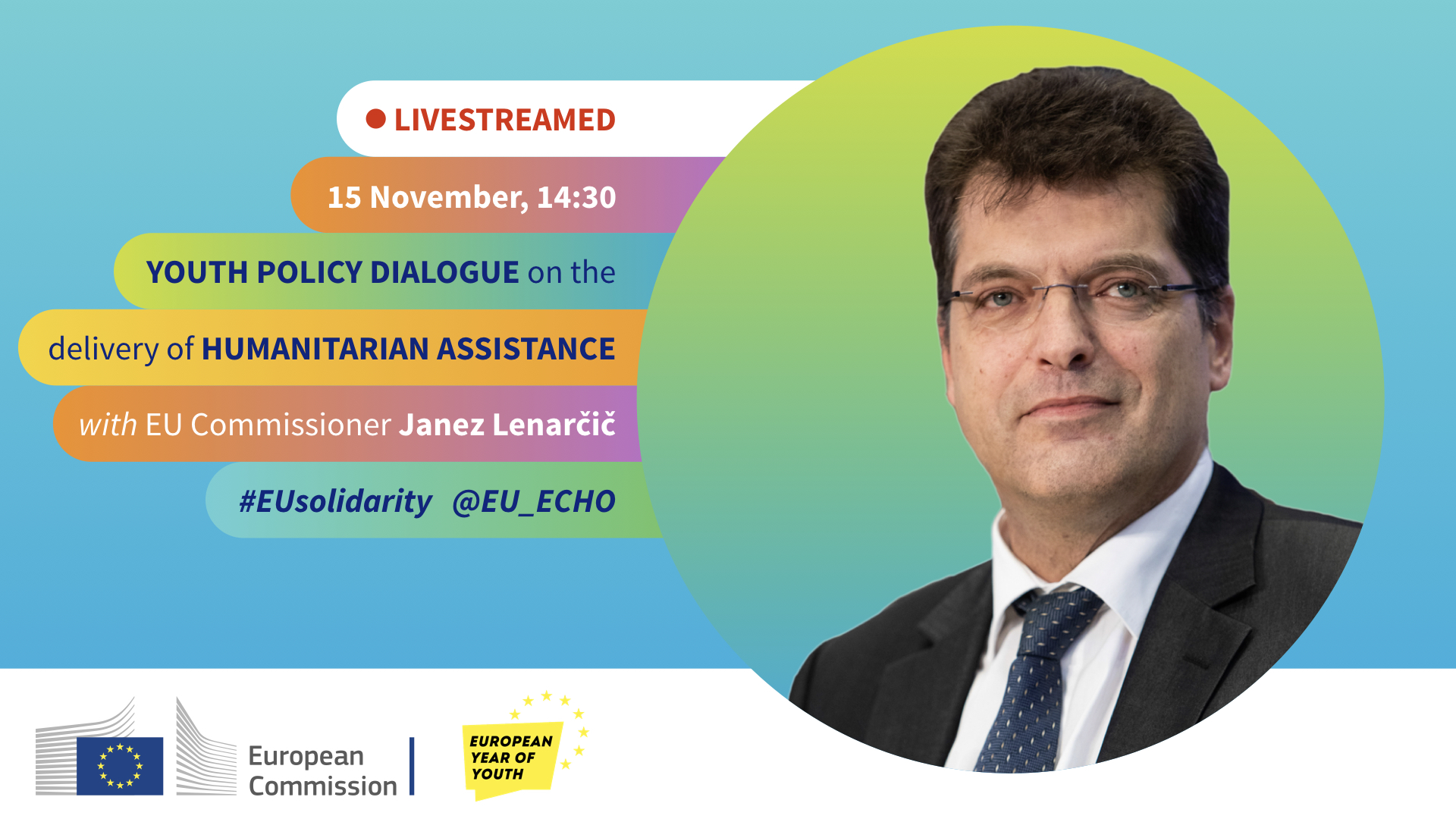Policy Dialogue with Commissioner Janez Lenarčič: "Climate change and humanitarian action and International Humanitarian Law"
 @© European Union, 2022
@© European Union, 2022
15/11/2022 14:30
15/11/2022 16:30
[CET] Central European Time
wifi_tethering Watch the live stream
Rue de la Loi, 200, 1049, Brussels, Belgium
Commissioner Lenarčič engaged in a discussion on the importance of humanitarian aid with a group of young people coming from all over Europe. 14 young participants shared their vision to discuss on behalf of all the European youth with the Commissioner. They especially discussed their views on the provision of humanitarian aid throughout the world, on the Ukrainian affairs and the adaptation to climate change for the needs of the young generation. Their concerns were be highly valued for the continuous delivery of EU aid and especially the continuous provision of support to the people with the most needs.
Among them, 12 participants between 18 and 28 years old were selected via their personal interest and global concern towards humanitarian affairs. They were joined by two representatives of the European Youth Forum.
This policy dialogue took place as part of the European Year of Youth, which aimed to engage young people in building a greener, more inclusive and digital future for Europe.
Did you miss the live discussion? Don't worry, you can watch the recorded version by accessing the European Commission live stream page.
Take aways from the Dialogue
- Increase EU humanitarian aid funding to keep up with the consequences of crisis both on the European level and globally. Address food security at global level and the special needs of young people during crisis. Facilitate structural changes to tackle the root causes of crises. In international fora, advocate for an increased cooperation with Member States and other organizations. Tackle refugee needs at the EU level addressing situations in border regions.
- Prioritize education in emergencies and boost youth participation in societies, with an increase in the allocation of humanitarian funds to education (above the current 10% objective). Recognize the significance of education for the development of countries affected by a crisis. Address the importance of teachers’ resilience in crises with more training, more budget and more healthcare in emergencies.
- Prepare for the future with relevant solutions of climate change consequences. Learn to better tackle climate change effects with the use of science and innovative technologies. Strengthen prevention, preparedness and emergency response by including climate adaptation measures, compensations for countries at risk, stronger collaboration with EU national authorities, and risk awareness actions among the (young) citizens. Ensure adequate EU budget to tackle climate change consequences in the future.
- Consider the creation of a permanent youth panel on humanitarian issues. Assess this concept further with the example of the functioning of the DG INTPA Youth Sounding Board.
In the context of the European Year of Youth 2022 and as part of the 'Civil Protection Knowledge Network', the Directorate-General for European Civil Protection and Humanitarian Aid Operations has also done a 'youth' in civil protection study visit in October 2022. Personal stories of the 'Next generation' will be shared on the Civil Protection Knowledge Network webpage.
Activity details
| Activity format | Hybrid (both online and with face-to-face presence) |
| Starts on | 15/11/2022 14:30 |
| Ends on | 15/11/2022 16:30 |
| Timezone | [CET] Central European Time |
| Organised by | European Commission |
| Target age range | 14-17; 18-24; 25-30; 31-35; Over 35 |
| Language of the activity | English |
| Type of activity | Debate |
| Activity topics | Participation & engagement; Youth and the world; Climate & environment; Other |
| Youth Goals this activity is linked to | Connecting EU with Youth; Sustainable Green Europe |
| Related to the Conference on the Future of Europe | No |
| Number of expected participants (estimate) | 20 |